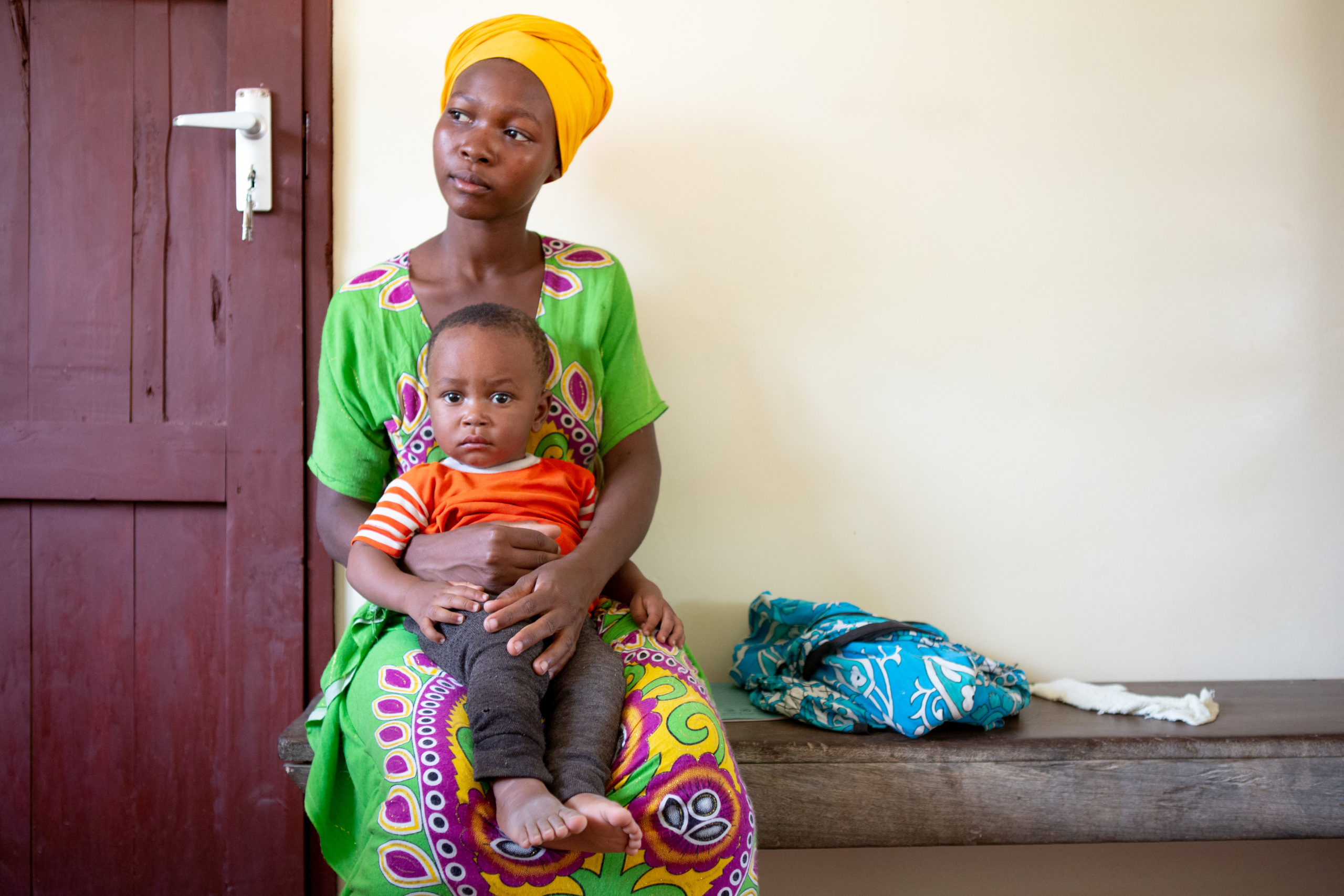Youth Advocacy in Action (Spring 2023)

Ready for this moment
 It’s been nearly three months since I began my role as PAI’s new president and CEO, and it has been an exciting start to my journey.
It’s been nearly three months since I began my role as PAI’s new president and CEO, and it has been an exciting start to my journey.
From the repeal of the Global Gag Rule (GGR) and reintroduction of the Global HER Act to the reintroduction of the Abortion is Health Care Everywhere Act, there is unprecedented momentum to ensure that sexual and reproductive health services are part of the essential health care available for every community. It is clear to me that PAI and our movement are ready for this moment.
When I accepted the offer to lead PAI, I knew I was joining an organization with a rich history and stellar reputation. I recognize that this has been made possible by PAI’s dedicated donors, so thank you for all you have done to advance our shared mission.
As a woman born in Pakistan and raised in Mexico, I have seen firsthand the transformative power that access to health care can have on the lives of women, families and communities. Because my own mother was fortunate enough to have trusted reproductive health information, services and support, she was able to make decisions that were best for herself and our family.
Every person should have the same opportunity. But for far too many, the fundamental right to reproductive health remains out of reach. It should not be this way.
After a tumultuous year and with an ongoing global pandemic that has highlighted and worsened health disparities, PAI is poised to lead a new era — one that is driven by equity and local needs and where sustained access to quality sexual and reproductive health services is universally accepted, not only as a human right, but also as critical to progress.
I aim to make the most of this opportunity for PAI and the partners we work with, and hope that we can count on your continued support. Together, we will work with communities to transform policies impacting people’s health and lives for the better.
In solidarity,

Nabeeha Kazi Hutchins
President and CEO
The Global HER Act is key to ending the Global Gag Rule
Eight days after being sworn into office, President Biden signed an executive order repealing the GGR. This put an end to his predecessor’s disastrous policy — at least for now.
The same presidential memorandum also called for resumed U.S. funding to the United Nations Population Fund and began the process of rescinding the Domestic Gag Rule.
PAI and other sexual and reproductive health and rights advocates applauded these steps, but our work is far from over. Undoing the damage of the Trump-Pence administration and ensuring real, lasting progress for women, girls and vulnerable communities require sustained advocacy.
Key to our strategy is permanently ending the GGR by passing the Global Health, Empowerment and Rights (Global HER) Act through Congress. For years, PAI has been documenting the impact of the GGR, equipping our allies on Capitol Hill with direct evidence of the policy’s harm and helping build a strong case for its final repeal.
Building off the momentum of President Biden’s executive order rescinding the GGR, members of Congress reintroduced the Global HER Act with robust support in both houses on the same day. PAI led efforts to secure a record number of original co-sponsors — 47 senators and 174 representatives, including several newly sworn-in freshman members.
Because of the razor-thin majorities in both the House and Senate, PAI is pursuing multiple tactics to advance the Global HER Act. In addition to passing this GGR repeal bill as stand-alone legislation, we are also encouraging our congressional champions to use the appropriations process — the funding bills that keep the federal government running — as the vehicle to end this harmful policy once and for all.

Our approach is not without precedent. In 2019, the House passed an appropriations bill that contained a permanent GGR repeal. Unfortunately, the Republican-led Senate at the time refused to do the same. But with reproductive rights champions currently controlling the appropriations committees in both houses, including two Republican co-sponsors of the Global HER Act in the Senate, this strategy represents our strongest chance of passing the bill.
The Trump-Pence administration implemented the most expansive version of the GGR that we have ever seen. The policy’s impacts will take years to repair, and unless it is permanently repealed, any gains made would easily be reversed if a Republican president is elected in 2024. Thanks to generous donors like you, we have made significant progress on advancing the Global HER Act and hope that we can count on your continued support for the work ahead.
Now is the time for Congress to end the Global Gag Rule once and for all.
Contact your representative to voice your support for the Global HER Act.
For CEHURD, permanent repeal of the GGR would be the best gift for women
Since 2009, the Center for Health, Human Rights and Development (CEHURD) has fought for the expansion of sexual and reproductive health and rights in Uganda, where a conservative government and long-standing social, cultural and religious norms make this type of advocacy especially challenging.
When Donald Trump became the U.S. president and immediately reinstated an expanded GGR in 2017, CEHURD knew its work would be more difficult — and more important — than ever before.
When in effect, the GGR forces organizations outside of the United States to choose between receiving U.S. global health funding and providing comprehensive care and services to the people they serve. So, when CEHURD needed to renew its U.S. funding for a health project, the organization was also required to affirm that it would not engage in abortion advocacy or provide information, referrals and services for abortion.
“We are bold about advocating for abortion rights. We could not compromise our values when it comes to social justice and health for everybody, especially young women and girls,” says Dorothy Amuron, programme manager for Campaigns, Partnerships and Networks at CEHURD.
As a result of the GGR, CEHURD refused this U.S. funding. Because no other organization could be found to take over its role, the entire project — which focused on ensuring the national medical stores properly managed key medications and supplies, including antimalarials and HIV testing kits — was shut down.
The GGR also served to embolden those opposed to sexual and reproductive rights in Uganda. Hard-fought gains made by CEHURD and other advocates were rolled back during this time, including the recall of national guidelines that had expanded abortion rights and contraceptive services for young people.

In 2019, PAI began working with CEHURD on how to mitigate the impact of the GGR, providing funding and guidance to help the organization navigate the complexities of the policy. CEHURD, in turn, shared this information with other advocates, taking on a leadership role to help strengthen partnerships and coalitions in Uganda.
In February 2020, with support from PAI, CEHURD’s executive director, Moses Mulumba, traveled to Washington, D.C. to testify before the House Foreign Affairs Committee. This platform enabled CEHURD to deliver a clear picture of the harmful impacts the GGR was having on Uganda’s most vulnerable communities.
While President Biden’s repeal of the GGR was a welcome move, undoing the damage from the past four years takes more than the stroke of a pen. With continued support from PAI, CEHURD is focusing on strengthening coalitions and mapping out laws and policies that stand in the way of progress while still contending with the opposition that was bolstered by the Trump-Pence administration.
“Permanent repeal of the GGR would be the best gift ever given to women in terms of determining their bodily autonomy and the choices they make. Globally, it would enable many policies that protect rather than harm women and create a legal environment where their bodies are no longer politicized.”
— Dorothy Amuron
CEHURD’s relief at Biden’s repeal is also tempered by the knowledge that, should the United States elect another Republican president in 2024, the GGR will likely be reinstated. This uncertainty has a significant impact on the organization’s ability to make long-term plans.
“We’re at a crossroads, but we’re still positive,” says Amuron. “We know that if we make the most of the next four years, we can train community health advocates, get more funding and plant the seeds for a movement that can withstand future disruption. But Uganda is not an enabling environment, and advocacy is long-term work, so it’s uncertain what can be achieved in just four years.”
The Global HER Act would legislatively end the GGR once and for all. For years, PAI has been building a strong case for the bill and will seize opportunities under the Biden-Harris administration and Congress to strengthen support for its passage.
Monthly donor Keith Burridge shares why he supports reproductive rights
 Why are sexual and reproductive health and rights important to you?
Why are sexual and reproductive health and rights important to you?
I have always been very supportive of women’s rights, including reproductive rights. Women face many unique vulnerabilities in society, and we have a long way to go to address this issue. Giving to organizations like PAI is one way I can help.
How did you first learn about PAI?
While I was a professor at the University of North Carolina at Chapel Hill, I participated in my employer’s workplace giving campaign. There were about 500 organizations to choose from — it was quite overwhelming! But when I narrowed the list down to those focusing on women’s reproductive rights, I discovered PAI and started contributing through a paycheck deduction.
When I retired 18 months ago, I decided to continue supporting PAI by donating directly.
How do you feel that PAI’s work advances the rights of women and girls?
There are many great nonprofits, several of which I also support, that provide reproductive health services to people. But I also know how important advocacy is. Too often, we see older men in positions of power laying down the rules for young women around the world, without any real understanding of the consequences these restrictions have.
PAI is making sure that policymakers know the impacts these decisions have on women and communities and fights to end appalling policies like the GGR, which crippled access to reproductive health care in so many countries.
Why did you choose to support this work by becoming a monthly donor?
Primarily it was so I didn’t forget! Since retirement, I’ve devoted myself full time to writing plays, so setting up a monthly donation was an easy way to make sure I maintain my commitment to the causes I care about. Plus, I know it’s helpful for PAI to have steady support to rely on each month.

Stay informed about the issues impacting sexual and reproductive health and rights.